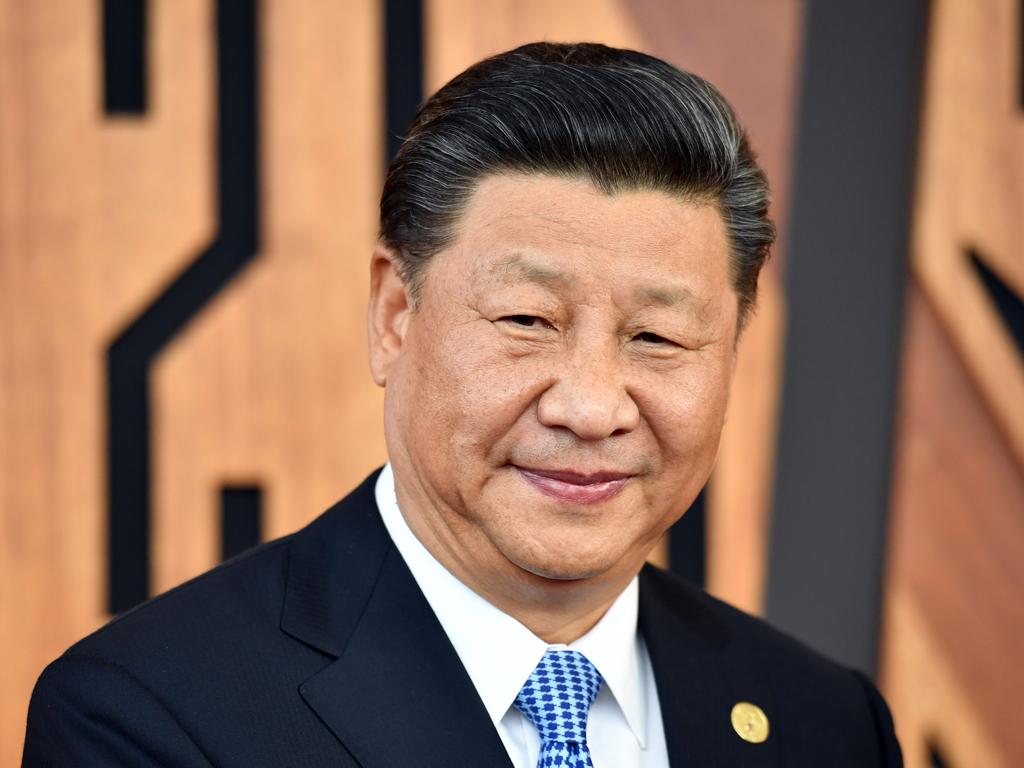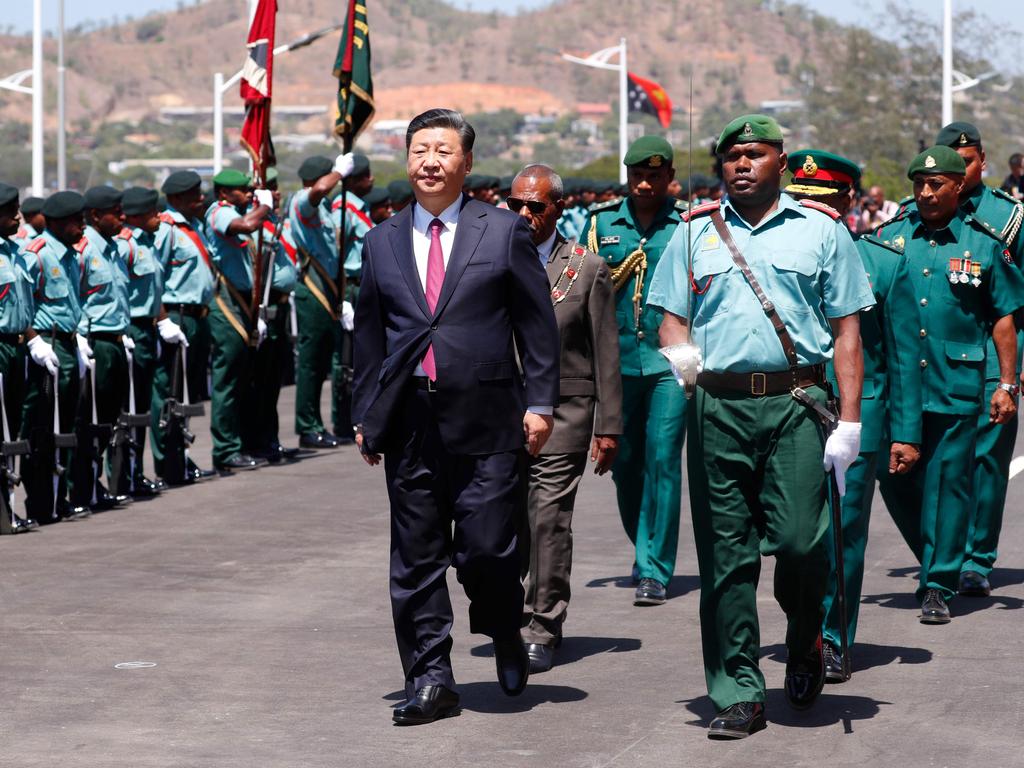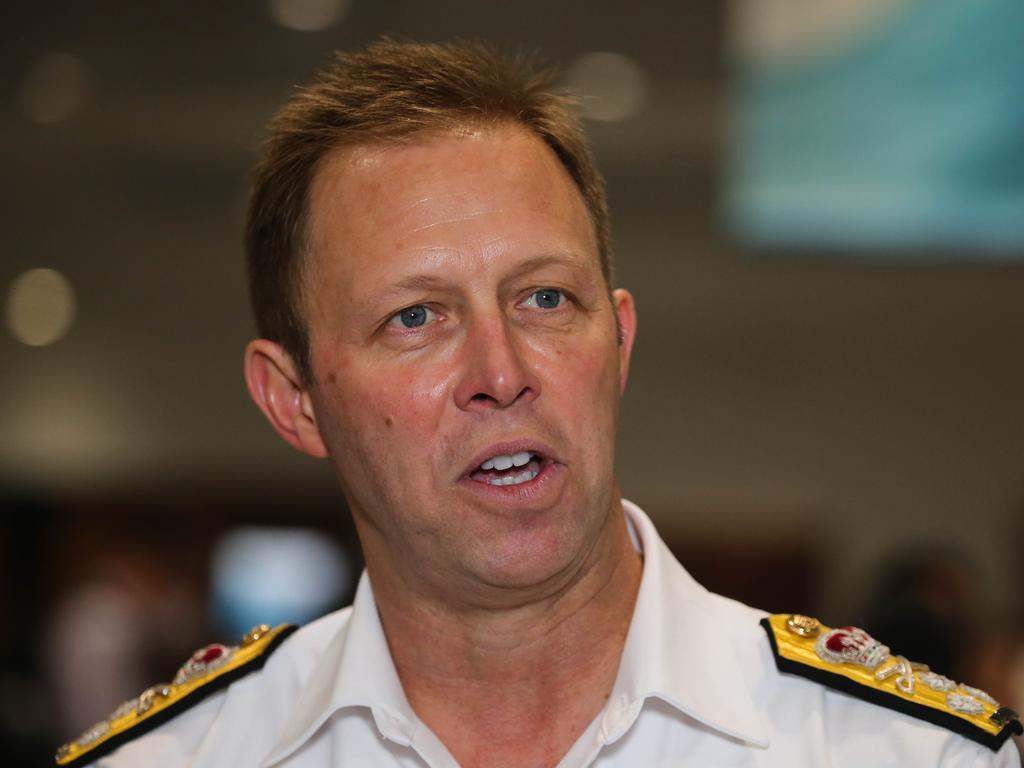Analysis: Why AUKUS subs deal will change the game for China
The submarines deal is expensive and risky but will redefine Australia’s long-term security and change the game with China forever.
ANALYSIS: When Vice Admiral Mike Noonan arrived in London in March 2021 he started a plot that government insiders have branded as something akin to a Le Carre novel.
The then chief of Navy held a series of urgent meetings the British codenamed Operation Hookless, from which the message was the same – China was moving on the Indo-Pacific and Australia had nothing in its fleet to act as a deterrent to its military expansionist ambitions.
He needed a big strategic play, he wanted nuclear-powered submarines and needed the British and Americans’ help to acquire it.
Two years to the month and Australia now has what it wanted and the Pacific is set for a rebalance.

The deal is brave, expensive, complicated and definitely risky but will redefine Australia’s long-term sovereign security outlook.
The Australian Defence Force has not seen anything like it in living memory but so too the nation has not seen a strategic outlook disintegrate so rapidly as now.
The global rules-based order has been placed under enormous pressure in Eastern Europe, largely the Ukraine-Russia war but also the Indo-Pacific where China threatens to forcibly reclaim self-governing democratic Taiwan and all islands and atolls in between and push through into the Pacific. Then there’s nuclear North Korea.

As Defence Minister Richard Marles points out: “We are witnessing the biggest conventional military build up that we have seen since the end of the Second World War and it is happening in our region and it is not Australia which is doing that.
“We need to respond to this, failure to do this will see us condemned by history.”
Defence has long ruled the strategic environment in the Indo-Pacific demanded a more collaborative and integrated approach to military deterrence and this submarine program provides that.
As an island nation the ADF has always been challenged in defending our shores but now with technology a nation like China could do so much harm – to cut undersea communication cables, block trade supply routes, pepper shoreline with long range missiles – before it even gets close to our shores.
The acquisition of the Virginia-class submarine, and later development of the new SSN-AUKUS class, will provide Australia for the first time with a stealth and deterrent capability unrivalled in the region, including China.
It will allow for critical projection before a threat can reach us.
Prime Minister Anthony Albanese likened the industrial base that will be required to usher in this new capability in scale, complexity and economic significance to the creation of the Australian automotive industry and the Holden in the post war period.
The man tasked and largely credited for the success in creating the pathway to the acquisition

Vice Admiral Jonathan Mead was in little doubt about its significance.
“I have been in defence for 39 years and without doubt this is larger than anything I’ve seen in my time with Defence, it’s the most significant thing since World War 2, more complex than anything (Australia) has seen, more complex than the Snowy or NBN,” he says.
The challenge now for the Australian Defence Force is to recruit. It has not made optimum recruitment and retention levels since 2016 with a healthy economy and no new military hardware on the horizon.
Today there are broad skilled labour shortages, a challenged economy and the submarine program requires a new 20,000 workers. The RAN also only has 900 submariners and needs hundreds more almost immediately to learn on the Virginia class let alone when the new boat is developed. The crew compliment required for the Virginia of 15 officers and 117 enlisted is more than double that of our current Collins class submarine crew.
But as recruitment begins in earnest and any submarine is delivered or built, the US and UK will send a “rotational presence” of up to five nuclear-powered submarines to Australia, to be known as the Submarine Rotational Force West and operating out of HMAS Stirling in Western Australia.
The move will give the region a deterrent to any China move in the short-term as Australia develops its new sovereign capability that in public at least Defence says is for “peace and stability”.
Originally published as Analysis: Why AUKUS subs deal will change the game for China




